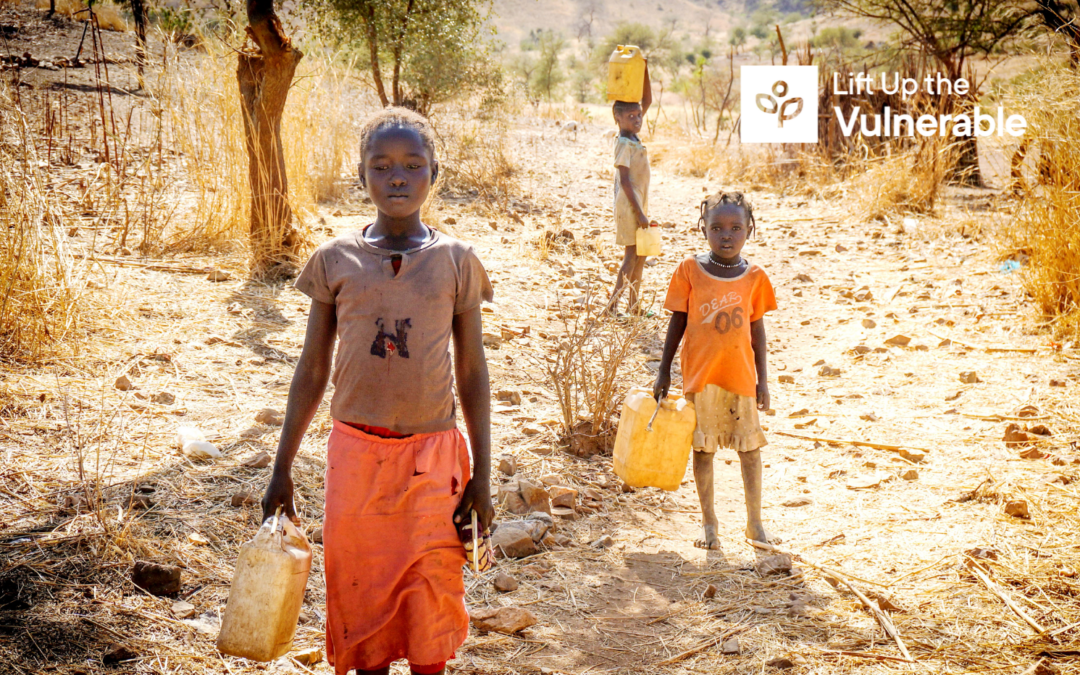The U.S. government’s freeze on foreign aid and the abrupt dismantling of key humanitarian infrastructure have created a devastating ripple effect, worsening Sudan’s already dire crisis. Here’s what’s happening, why it matters, and how you can take action.
Why Was USAID Funding Frozen?
On the first day in office Jan. 20, the Trump administration halted operations at the U.S. Agency for International Development (USAID), a key organization responsible for global poverty relief and humanitarian aid. With little more than 24 hours’ notice, a 90-day freeze was enacted, shutting down USAID’s headquarters and severely disrupting the distribution of essential food, medicine, and other life-saving supplies.
The administration cited concerns over fraud and mismanagement, pointing to reports that some aid funds were misused or even diverted to extremist groups. While addressing corruption is crucial, the broad shutdown of aid programs has caused widespread and reckless harm.
The Impact
Instead of addressing fraud through targeted reforms, the administration’s sweeping action has cut off critical assistance, leaving the most vulnerable without help. The decision to abruptly freeze aid has been devastating for local communities that rely on this support from NGOs to provide food, medical care, and education.
Sub-Saharan Africa could suffer more than any other region
Although humanitarian aid was meant to be exempt, shipments of essential food and medicine have been severely delayed worldwide — including in Sudan, which is currently the epicenter of the world’s worst humanitarian crisis. Prior to the freeze, USAID was the largest donor of humanitarian assistance to Sudan where:
- Nearly 25 million Sudanese — half the population — are experiencing severe food insecurity.
- Approximately 15 million people have been displaced, either within Sudan or as refugees — nearly one in three Sudanese.
- Over 75% of Sudan’s healthcare system has collapsed, leading to widespread outbreaks of preventable diseases.
- 19 million children are out of school, with roughly 90% of classrooms closed — making this the largest education crisis globally.
Despite the unprecedented scale of suffering, Sudan’s crisis remains critically underreported and underfunded. The further reduction of already scant support is yet another blow to a country in conflict.
Lift Up the Vulnerable does not receive U.S. government funding, so our direct programs in Sudan and South Sudan remain unaffected. However, the U.S. plays a massive role in global aid — including in Africa — and the gap left by these cuts will not be easily or quickly filled by other donors.
Why This Matters
Foreign aid is more than just charity — it’s a strategic investment in global stability, diplomacy, and U.S. national interests. Turning our backs on these commitments without warning or planning doesn’t just harm those in need; it also weakens our own security and influence.
Now more than ever, we must step up to support those in need. Stay informed, spread awareness, and consider donating to continue to provide life-saving care.
What Can You Do?
1. Contact Elected Officials: Reach out to your U.S. Senators and House Representatives to express concern about the suspension and advocate for continued funding.
-
- Call the U.S. Capitol Switchboard at (202) 224-3121 and ask to be connected to their representative’s office.
-
- Most officials have an email contact form on their website.
Here’s an example:
Subject: Please Take Action to Restore USAID Funding
Dear [Senator/Representative’s Name],
I am from [City, State], and I’m deeply concerned about the freeze on USAID funding. While I understand the need for accountability, cutting off aid suddenly is harming NGOs that provide critical food, healthcare, and education to those in need. Global instability ultimately affects the United States as well. I urge you to take action to restore funding and ensure that aid continues to reach vulnerable communities.
Thank you for your time.
Sincerely,
[Your Name]
2. Petitions: Sign a petition to oppose the freeze or cuts to federal aid.
3. Donate: As the suffering of children in Sudan increases, investing in grassroots organizations is key to long-term development. You can help feed one child for one month with a gift of $30 and invest in a future peacemaker.
Read More:
Doctors Without Borders: Freezing US foreign aid will result in humanitarian disaster
Time: Trump’s Freeze on Foreign Aid Will Make Diseases Surge
CNN: How the US foreign aid freeze is intensifying humanitarian crises across the globe
WDSU News: What is USAID? Explaining the US foreign aid agency and why Trump and Musk want to end it

